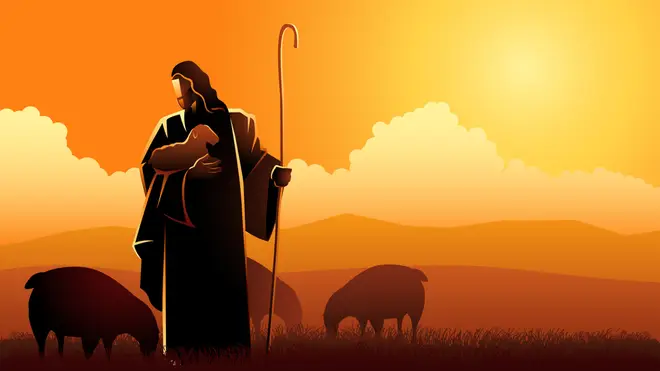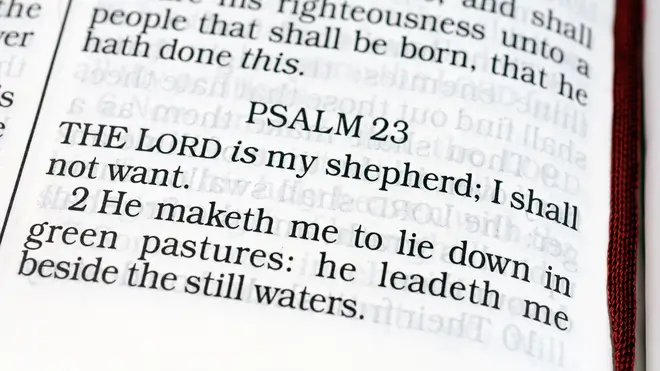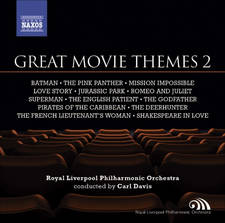What are the lyrics to ‘The Lord is my Shepherd’ and who wrote the hymn?
26 September 2023, 09:27

‘The Lord is My Shepherd’, sung by soprano Alexandra Stevenson
Discover the history behind the beloved hymn and the controversy surrounding the credited composer...
Listen to this article
Based on the 23rd psalm of the Book of Psalms, ‘The Lord’s my Shepherd’ is a hymn which describes God as a shepherd, protecting his ‘flock’.
From the King James Bible, the verse reads:
The Lord is my shepherd; I shall not want.
He maketh me to lie down in green pastures: he leadeth me beside the still waters.
He restoreth my soul: he leadeth me in the paths of righteousness for his name’s sake.
Yea, though I walk through the valley of the shadow of death, I will fear no evil: for thou art with me; thy rod and thy staff they comfort me.
Thou preparest a table before me in the presence of mine enemies: thou anointest my head with oil; my cup runneth over.
Surely goodness and mercy shall follow me all the days of my life: and I will dwell in the house of the Lord for ever.
Read more: Solo soprano sings Queen’s beloved hymn ‘The Lord is My Shepherd’ in intimate tribute

Who wrote the lyrics for ‘The Lord is My Shepherd’?
While the words come from the 23rd Psalm of the Book of Psalms, the lyrics for the hymn went through multiple variations before becoming the lyrics we sing today.
In 1641, the English lawyer and politician, Francis Rous, published a metrical paraphrase of the bible verse in a new Book of Psalms, during the reign of Oliver Cromwell.
Nine years later, Rous published a hymn arrangement of ‘The Lord is My Shepherd’ with significant changes to the text. These lyrics are the closest to the setting we have now.
It was in Rous’s 1950 version of the hymn that the first line, ‘The Lord is My Shepherd’ was re-written to ‘The Lord’s my Shepherd’.
Read more: Be Thou My Vision: what are the lyrics and who wrote the hymn?

String quartet plays Goodall's 'Lord Is My Shepherd' in stunning stairwell acoustic
Who wrote the music for ‘The Lord is my Shepherd’?
There have been multiple arrangements of Psalm 23, with major modern choral composers from John Rutter to Howard Goodall (which Aled Jones performs with his son in the above video) reimagining the melody. Both of these composers draw text directly from the Bible psalm.
But the oldest, and perhaps most famous melody was written in 1871 by Jessie Seymour Irvine, the daughter of a parish minister, which accompanies Rous’, ‘The Lord’s my Shepherd’ text.
Irvine was an organist, and would often take metrical psalms and set them to music. She wrote the tune for Rous’ ‘The Lord’s my Shepherd’ as an exercise for a composition class.
Her composition was later performed at an evening service at a local church. Irvine was reportedly dissatisfied with her own harmonisation and asked a local musician, David Grant, from Aberdeen, to re-harmonise her melody.
Read more: String quartet plays ‘The Lord is My Shepherd’ in heavenly stairwell acoustic

At the time, Grant was part of the production of an upcoming hymnal, titled The Northern Psalter, which would later become very successful, selling over 70,000 after its release in 1872.
Irvine submitted her melody for ‘The Lord is my Shepherd’ to the hymnal however, once published, only Grant was credited as the sole writer of the music.
Irvine passed away five years later, and the authorship of the hymn remained undisputed until the next century, when scholars found letters from Irvine’s sister, Anna.
In the correspondence Anna attested that it was her sister who had written the music, with Grant just providing melody.
This claim was contested by the publishers of The Northern Psalter, and to this day, some publishers still credit Grant. However, numerous journalists have since expressed support for Irvine’s authorship of the work, using accounts from locals who were acquainted to Irvine.
Read more: 10 women who changed the classical music world forever

The Lord is my Shepherd – Aled Jones
What are the lyrics for The Lord’s my shepherd?
The Lord’s my Shepherd, I’ll not want;
He makes me down to lie
In pastures green; He leadeth me
The quiet waters by.
My soul He doth restore again,
And me to walk doth make
Within the paths of righteousness,
E’en for His own name’s sake.
Yea, though I walk in death’s dark vale,
Yet will I fear no ill;
For Thou art with me, and Thy rod
And staff me comfort still.
My table Thou hast furnished
In presence of my foes;
My head Thou dost with oil anoint,
And my cup overflows.
Goodness and mercy all my life
Shall surely follow me,
And in God’s house forevermore
My dwelling-place shall be.






















